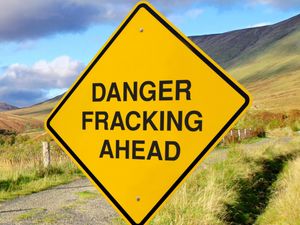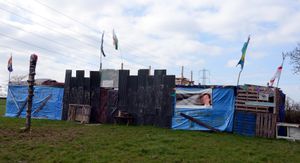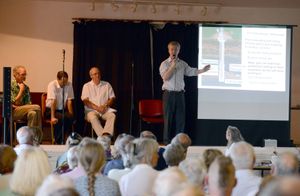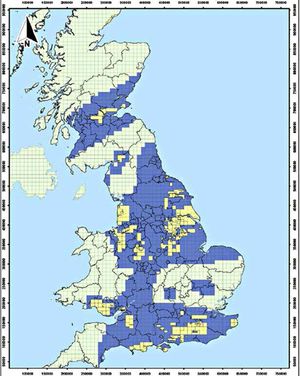Fears that Liz Truss' possible lift on fracking ban could bring energy company to Shropshire to look for sites
The re-emergence of the F work - fracking - will bring metaphorical shudders across north Shropshire.

Downing Street has indicated that Prime Minister, Liz Truss, will end the moratorium on fracking – the process of extracting shale gas by fracturing rocks with high-pressure water.
And any moves to lift the ban will bring fears that a swathe of land across the north western part of the county could be targeted by energy firms seeking licences to frack.
Nationally, opponents have long warned that fracking can cause earthquakes, water contamination, noise and traffic pollution.
In Shropshire, a bid to open up a fracking site near Ellesmere brought anti-frackers from across the country to camp on the land eight years ago.

The 'Frack Off' camp was set up at Brooklands Farm, Dudleston, after Dart Energy put forward a scheme to drill an exploratory borehole.
A makeshift encampment with homes and even a wooden watchtower was created by the campaigners along with tents erected by others who joined in the protest.
Public meetings were held in local village halls with residents questioning Dart Energy over its plans.
The landowner's hands were tied by an historical agreement and he was caught in the middle of months of protests by not only those who set up camp on his land but also local people.

Eventually, the threat disappeared when the licence for an exploratory test well expired and the farmer did not renew it.
However, while that threat is no longer a problem, there are more areas in Shropshire where licences could be applied for.
In 2013 a map was published by consultancy Amec listing the Meres and Mosses area - stretching from Shrewsbury up thorough north Shropshire and up to Cheshire in the north, Wrexham in the west and central Staffordshire in the far east - as a potential area for exploration. The Oswestry Uplands area was also been included on the road map.

The Conservative government of the day said that widespread shale gas production across the country was an "exciting prospect" that could create thousands of jobs and plough almost £1 billion back to local communities.
Today the meres and mosses are recognised as a hugely important carbon capturing landscape that could be vital in the fight against climate change.





